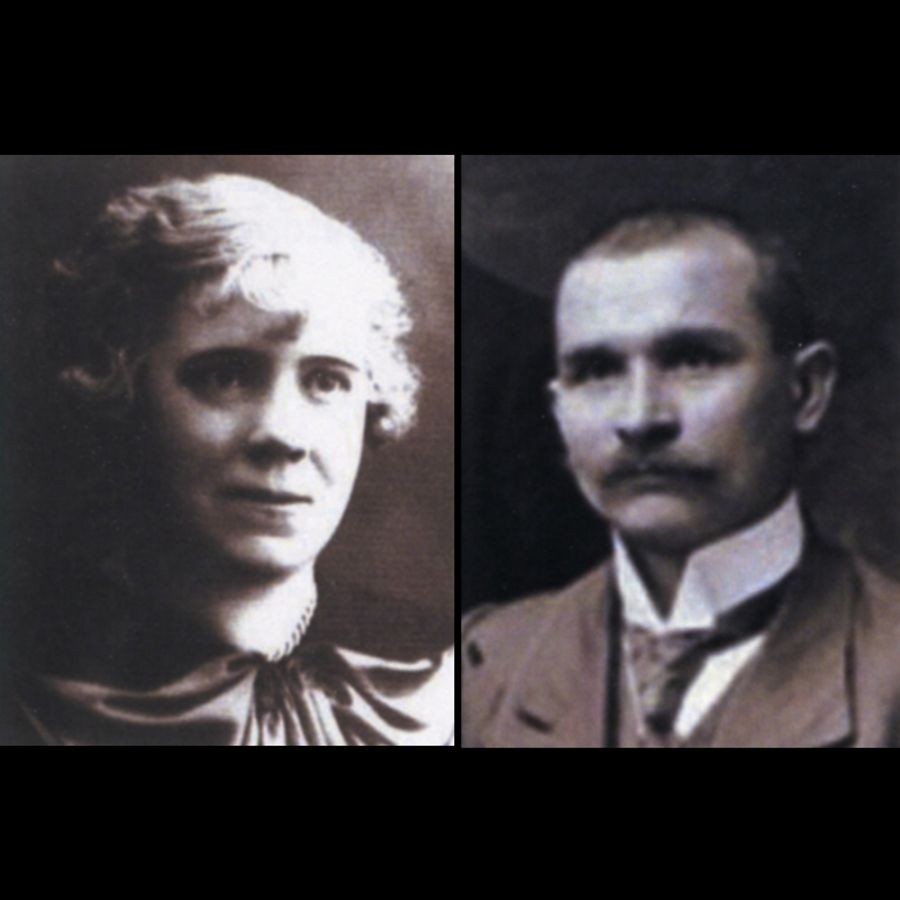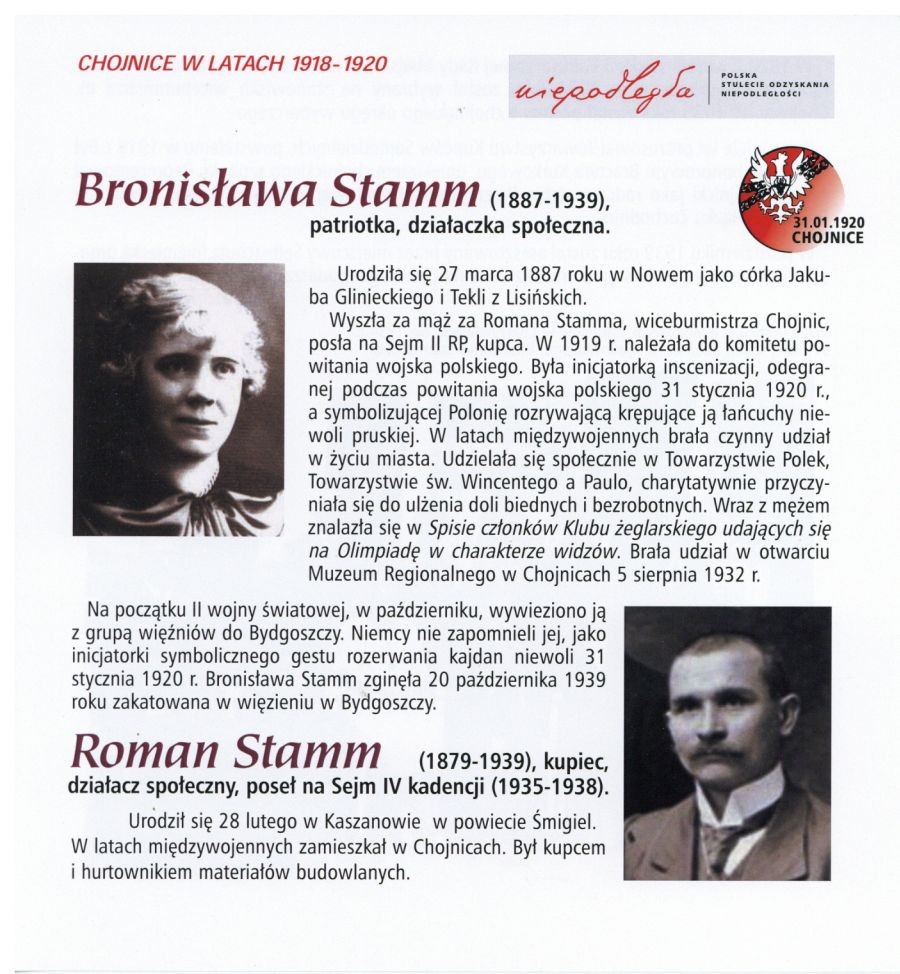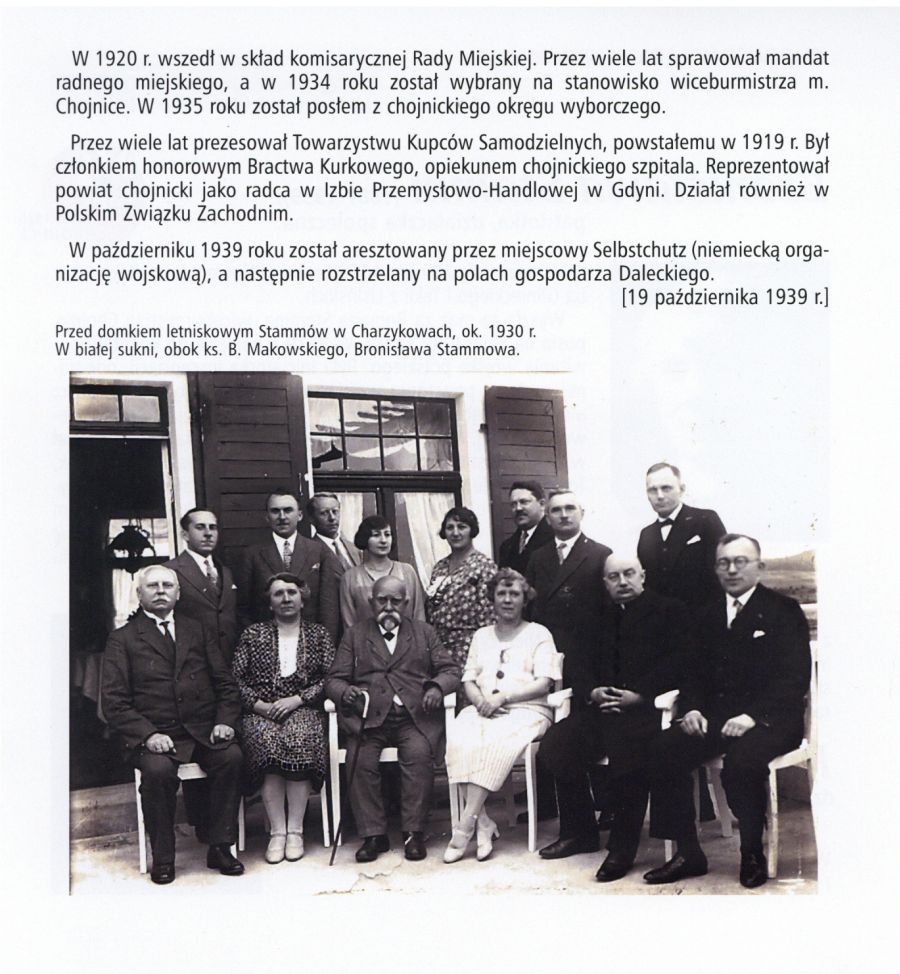
Bronisława Stamm (1887-1939), patriot, social activist, and Roman Stamm (1879-1939), merchant, social activist, MP for the 4th legislature (1935-1938)
Social activists who have made their mark with patriotic attitudes among the inhabitants of Chojnice was undoubtedly the married couple Bronisława and Roman Stamm.
Bronisława Stamm was born on 27 March 1887 in Nowe, the daughter of Jakub Gliniecki and Tekla née Lisińska. Roman Stamm, in turn, was born 28 February 1879 in Kaszanów. He settled in Chojnice in the years between the wars. He was a merchant and wholesaler of building materials. He married Bronisława Gliniecka, who was a social activist. She was a member of the committee to welcome the Polish army in 1919. She was also the initiator of the re-enactment played during the celebrations of the regaining of independence of Chojnice on 31 January 1920. She played the role of Polonia breaking the chains of Prussian captivity binding her. In the years Between the wars, Bronisława Stamm took an active part in the social life of the of the city. She was active in the Polish Women's Society, the Society of St. Vincent de Paulo, and she also contributed to the charitable work of the St. Anne's Society. Stamm was active in the social life of the city. unemployed inhabitants of the town. She participated in the opening of the Regional Museum in Chojnice on 5 August 1932.
Like his wife, Roman Stamm was an active social activist. In 1920, he became a member of the commissar city council. He held the seat of town councillor for many years and was elected vice-mayor of Chojnice in 1934. In 1935, he became an MP from the Chojnice constituency. For many years he was president of the Society of Independent Merchants, which was founded in 1919. He also served as an honorary member of the Bractwo Kurkowe, as well as a guardian of the Chojnice hospital. He represented the Chojnice district as a councillor in the Chamber of Industry and Commerce in Gdynia. He was also active in the Polish Western Association.
The outbreak of the Second World War on 1 September 1939 was the beginning of tragic events for our country and its inhabitants. Many prominent social activists and local patriots posed a threat to the German occupier. Examples of such people were the married couple Bronisława and Roman Stamm. In October 1939, Roman Stamm was arrested by the local German military organisation Selbstchutz and executed on 19 October 1939 in the fields of the Dalecki farmer. Also in October 1939 Bronisława Stamm was arrested. She was taken with a group of prisoners to Bydgoszcz. The Germans did not forget that she was the initiator of the symbolic gesture of breaking the chains of captivity on 31 January 1920. She died on 20 October 1939, tortured to death in a Bydgoszcz prison.
The marriage of Bronisława and Roman Stamm exemplifies the defence of Polishness against the German occupiers, as well as the highest patriotic feelings. Both will be remembered by Chojniczans as active social activists. They were not afraid to give their lives for their political convictions and love for their homeland. Their story, although ending in a tragic death, is an example of great sacrifice for Poland and the next generations of Poles.
More information about Bronisław and Roman Stamm can be found in the study ‘Faces of independence of the Chojnice area’, which is available for purchase at Brama Człuchowska.

